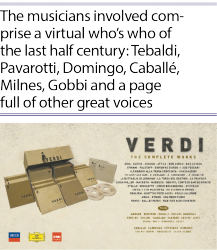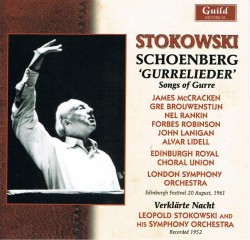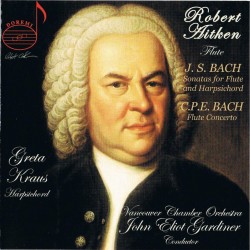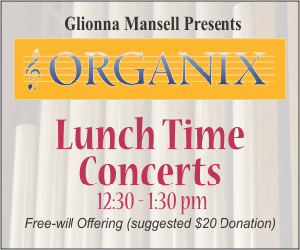Old Wine, New Bottles | Fine Old Recordings Re-Released - April 2013
 As 2013 marks the 200th anniversary of the birth of Giuseppe Verdi (1813–1901), record companies are issuing new and re-issuing existing recordings. Decca has outdone them all with the ultimate collection! As extensive as their catalogue and archives are, it was necessary for Decca to look beyond its own resources to assemble Verdi – The Complete Works (4784916, 75 CDs plus two 265-page hard-bound, informative books) and truly include everything. The majority of the performances come from Decca’s own archives, some from DG and two operas from EMI plus some oddments from elsewhere. Every opera is here, all 29 of them (30 if you include the 1869 version of the 1862 La Forza del Destino as a different opus), plus the Manzoni Requiem, the string quartet, sacred music, songs, ballet music, sinfonias and a group of “discoveries.” An astonishing achievement at a very low price. The packaging is unique, with each opera in an individual cardboard package listing the full cast. Synopses are included but not the libretto translations which can be found on the website. The musicians involved comprise a virtual who’s who of the last half century. Tebaldi, Pavarotti, Domingo, Caballé, Milnes, Gobbi and a page full of other great voices. Conductors include Karajan, Chailly, Abbado, Giulini, Kleiber, Muti, Solti, Levine et. al. Complete details at Arkivmusic.com.
As 2013 marks the 200th anniversary of the birth of Giuseppe Verdi (1813–1901), record companies are issuing new and re-issuing existing recordings. Decca has outdone them all with the ultimate collection! As extensive as their catalogue and archives are, it was necessary for Decca to look beyond its own resources to assemble Verdi – The Complete Works (4784916, 75 CDs plus two 265-page hard-bound, informative books) and truly include everything. The majority of the performances come from Decca’s own archives, some from DG and two operas from EMI plus some oddments from elsewhere. Every opera is here, all 29 of them (30 if you include the 1869 version of the 1862 La Forza del Destino as a different opus), plus the Manzoni Requiem, the string quartet, sacred music, songs, ballet music, sinfonias and a group of “discoveries.” An astonishing achievement at a very low price. The packaging is unique, with each opera in an individual cardboard package listing the full cast. Synopses are included but not the libretto translations which can be found on the website. The musicians involved comprise a virtual who’s who of the last half century. Tebaldi, Pavarotti, Domingo, Caballé, Milnes, Gobbi and a page full of other great voices. Conductors include Karajan, Chailly, Abbado, Giulini, Kleiber, Muti, Solti, Levine et. al. Complete details at Arkivmusic.com.
A curiosity, The Hymn of the Nations played by the Philharmonia Orchestra and chorus and Pavarotti turns out to be a boring, indifferent piece. Compare it elsewhere to Toscanini’s electrifying arrangement and extension filmed by the American Office of War Information in December 1943. Toscanini added both the Internationale (hacked out of all subsequent audio and video reissues shortly after the war) and a heroic Star Spangled Banner.
 In 1900 Schoenberg began setting to music verses by Danish poet Jens Peter Jacobsen that related the story of the doomed love of the Danish King Waldemar and his beloved mistress Tove, who is murdered by Waldemar’s jealous wife Helvig. Schoenberg worked on the project until 1903 when he laid it aside. In 1910 he applied himself to the task of setting and orchestrating parts two and three and by 1911 Gurrelieder, Songs of Gurre (Waldemar’s Castle) was completed. It is full of good tunes, clearly post-Wagnerian and regarded as Schoenberg’s Tristan and Isolde.
In 1900 Schoenberg began setting to music verses by Danish poet Jens Peter Jacobsen that related the story of the doomed love of the Danish King Waldemar and his beloved mistress Tove, who is murdered by Waldemar’s jealous wife Helvig. Schoenberg worked on the project until 1903 when he laid it aside. In 1910 he applied himself to the task of setting and orchestrating parts two and three and by 1911 Gurrelieder, Songs of Gurre (Waldemar’s Castle) was completed. It is full of good tunes, clearly post-Wagnerian and regarded as Schoenberg’s Tristan and Isolde.
Leopold Stokowski conducted the North American premiere in Philadelphia on April 8, 1932 with repeat performances on April 9 and 11. RCA recorded and issued the final performance on 28 78rpm sides that included Stokowski’s brief discussion of the work. It is readily available on CD and the second performance, given on April 9 and taken from 33 1/3 transcription discs, is available on Pearl (CDS 9066, 2CDs).
There was much excitement when it was announced that Stokowski would conduct the work at the Edinburgh Festival in 1961 and Stoki’s admirers overseas awaited hearing it via the BBC transcription service. Alas no. The story in circulation was that the BBC tapes had been lost between Edinburgh and London. A recording of that historic performance has surfaced and it would be picayune and pointless to critique any of the soloists by comparing them to their counterparts in other recordings. James McCracken is Waldemar, Gré Bouwenstijn is Tove and Nell Rankin is the Wood Dove. Forbes Robinson is Bauer, John Lanigan is Klaus-Narr and Alvar Lidell is the speaker. The London Symphony Orchestra is joined by the Edinburgh Royal Choral Union. The raison d’être for the publication of this performance is Stokowski who really gets what its all about and is completely immersed in the music. Under his baton the score grows organically, culminating in the glorious and overwhelming choral sunrise. The mono recording is not quite as articulate as we now take for granted but it is eminently fulfilling with unrestrained dynamics. I was not in any sense disappointed (Guild GHCD 2388/89, 2 CDs).
Included in this set is Verklärte Nacht that was recorded by Victor in 1952 just months after Schoenberg’s death. The string orchestra was comprised of New York musicians chosen by Stokowski, whose practice it was to telephone each individual and personally engage them. Here is a passionate, heartfelt performance that, while amply dramatic, has no hint whatsoever of bathos. The transfer is exemplary. This is the first of Stokowski’s three recordings of the work. Incidentally, Stokowski is unique in having performed all of Schoenberg’s orchestral works during the composer’s lifetime.
 Canada is blessed with a certain number of outstanding classical musicians of international calibre and reputation. Flutist Robert Aitken is one of them, still enjoying an impressive international career spanning more than 50 years. In addition to his engagements as a flutist, he is a composer, conductor and the founding artistic director of Toronto’s New Music Concerts. Aitken also held the position of professor of flute at the Hochschule für Musik in Freiburg, Germany until his retirement in 2004.
Canada is blessed with a certain number of outstanding classical musicians of international calibre and reputation. Flutist Robert Aitken is one of them, still enjoying an impressive international career spanning more than 50 years. In addition to his engagements as a flutist, he is a composer, conductor and the founding artistic director of Toronto’s New Music Concerts. Aitken also held the position of professor of flute at the Hochschule für Musik in Freiburg, Germany until his retirement in 2004.
With more than 60 recordings over the years, his collaborations have included a host of luminaries, including the late, great harpsichordist Greta Kraus. This disc features Aitken and Kraus in live direct-to-disc recordings from 1979 of J.S. Bach’s Three Sonatas for Flute and Harpsichord BWV1030-1032 and from 1969, the Partita BWV997. Bach composed the partita for lute alone and here Aitken and Kraus play their own transcription.
This new CD amply demonstrates Aitken’s supremacy in his field ... silky tone, breathtaking virtuosity and fluid pyrotechnics. His always immaculate intonation and artistry communicate the best of the composer to his audience. In the familiar C.P.E. Bach Concerto Wq22, with John Eliot Gardiner conducting, Aitken and the Vancouver Chamber Orchestra offer a crisp and enthusiastic performance as fine as any that I’ve heard. Live from 1981, the restored sound is outstanding, as it is on each and every track on this CD (DOREMI DHR-6611).


